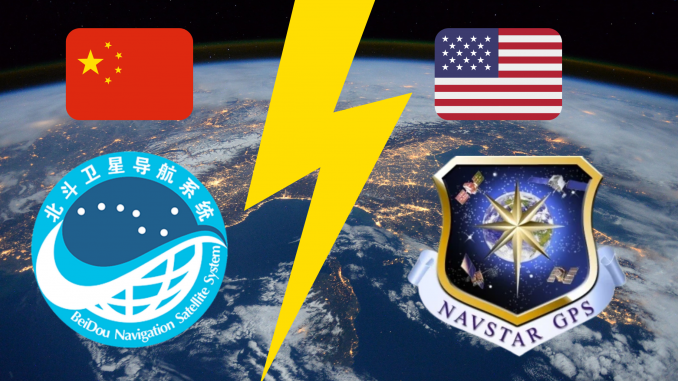
China is already competing to the world’s major companies in technology, but now the matter has gone a little further. Now this competition is taking over space, beyond the borders of the earth. China has completed BeiDou navigation satellite system which is providing global coverage for positioning. As a matter of fact it is providing more accuracy in Asia Pacific region as compare to American GPS.
when it comes to data dominance
US powered GPS is being used worldwide for transportation, business and military purposes. With its help, it has not been difficult to determine any place at home and abroad. But there is another side to it. The data of all the individuals, entities and countries that use this navigation system is governed by the United States.
Until a few months ago, the US powered GPS was an uncrowned king among navigational services providers. But now China has launched BeiDou Navigation Satellite System (BDS), which is providing global coverage as well as better results. That’s why the US monopoly in this scenario seems to be coming to an end in the near future.
Before BeiDou Satellite Navigation System
Prior to BeiDou Navigation System (BDS), there were eight global satellite navigation systems, including the American GPS, the Russian GLONASS, and European Galileo navigation system. BeiDou literally means “Northern Dipper”. This name was given by the ancient Chinese astronomers to the seven bright stars with the help of which the northern star can be found.
According to China’s National Space Agency, the BeiDou satellite navigation system was completed in three phases:
BeiDou-I: Experimenting Chinese GPS System
The first phase, which has a duration of 2000 to 2003, is called BeiDou-I. This phase involved about three satellites. BeiDou-1 satellite navigation system was purely experimental. It was used to provide timely information on the Sichuan earthquake. Later, in October 2009, gadgets equiped with Chinese GPS system was provided to border guards in the Chinese province of Yunnan. With the inauguration of BeiDou-II at the end of 2012, BeiDou-I was cancelled.
BeiDou-II: China Navigation System Providing Regional Coverage
The second phase of the China navigation system began in 2012. It is called BeiDou-II and also known as COMPASS. In this phase, navigational coverage was provided at the regional level. BeiDou-2 consisted of navigational coverage of China and adjoining territories.
BeiDou-II navigation system consisted of approximately 35 satellites, of which five satellites were used for BeiDou-1 compatible systems and the rest for BeiDou-2 Satellite Navigation System. Two types of services were being provided by this version of China navigation system. The civilians were provided free navigational services which were able to accurately determine any position up to 10 meters.
In addition, licensed services were provided to Chinese officials and forces. Significantly, the Chinese forces were given access to BeiDou-II restricted satellite navigation system access, which could accurately locate any location up to 10 cm.
BeiDou-III: Global Coverage of BeiDou BDS
23 June 2020 was the most important day when BeiDou satellite navigation system (BDS) reached its completion. The highlight of the third phase is that the Chinese GPS system will now provide global coverage. More than six satellites are currently part of this navigation system. With the correct positioning reaching the level of 10 cm, the status of the NavStar GPS as uncrowned king has now changed.
The use of Baidu satellite navigation systems on a commercial basis is growing rapidly. While an important development on the military front is that the Pakistani forces have started using the Baidu satellite navigation system. Earlier, the Pakistani military relied on the US Air Force-controlled NavStar GPS system.
Do you think Baidu will be able to compete with other navigation systems in this race of satellite navigation system technology? Comment below and share your valuable feedback with us. Visit our blog regularly to keep yourself up-to-date with the world of technology.
I like it